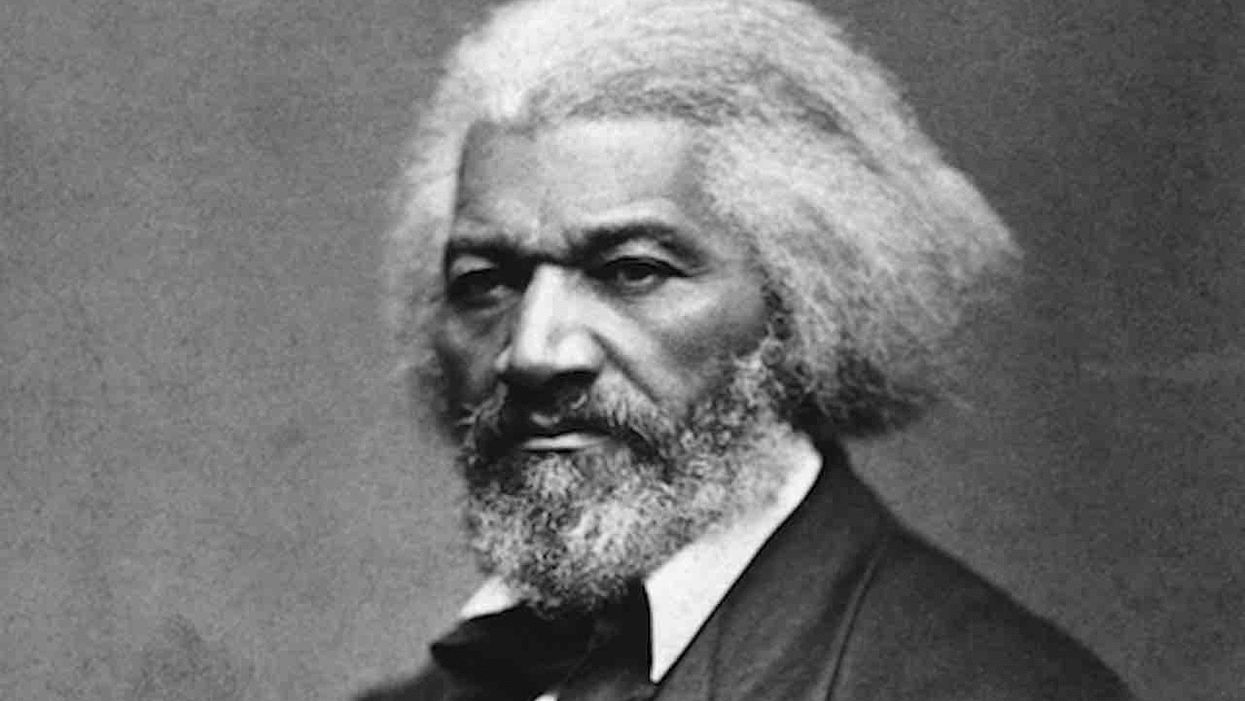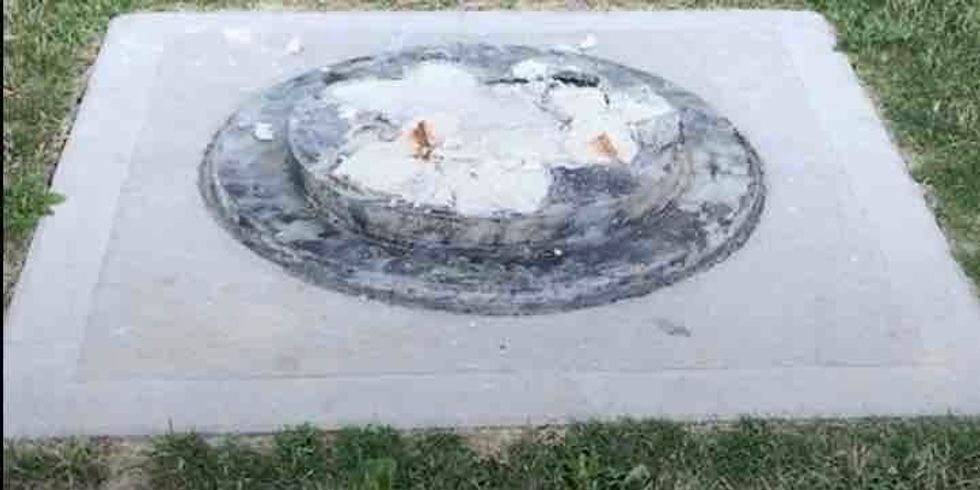
Photo by © CORBIS/Corbis via Getty Images

'It's particularly painful that it happened at this time'
A statue of iconic abolitionist Frederick Douglass was torn down over the weekend where it stood in a park in Rochester, New York, the Democrat & Chronicle reported — and the act occurred on the anniversary of Douglass' speech "What to the Slave is the Fourth of July?" that he gave in the city prior to the Civil War.
The Douglass statue in Maplewood Park was toppled from its base and left near the Genesee River Gorge, about 50 feet from its pedestal, police told the paper. The base and lower part of the statue were damaged, as was a finger on the statue's left hand, but police added to the paper that there were no signs of graffiti.

"It's particularly painful that it happened at this time," said
Carvin Eison, a leader of the project that brought a number of Douglass statues to Rochester in 2018 in remembrance of his 200th birthday, the Democrat & Chronicle reported.
More from the paper:
That year, two St. John Fisher students were arrested for severe damage to one of the downtown statues. They maintained they were drunk when they vandalized the statue, while one witness claimed he heard racial slurs before the crime.
They later pleaded guilty to criminal mischief and participated in a restorative justice program in which they learned of the legacy of Douglass.
Eison told the Democrat & Chronicle that the damage to the Maplewood Park statue is too severe for a repair, but another Douglass will take its place. The damage is under investigation, the paper added.
More from the Democrat & Chronicle:
There is historical significance to the timing of the vandalism — though no one can now say whether the timing was mere happenstance — just as there is historical significance to the statue's very location. The Maplewood Park location includes Kelsey's Landing, where Douglass, Harriet Tubman, and others helped shuttle slaves to safety along the Underground Railroad.
Across the United States, Douglass' July 5, 1852 speech, has been shared widely on social media and elsewhere as a reminder of the country's legacy of slavery and racism.
Douglass, a former slave, delivered the speech to the Ladies' Anti-Slavery Society at Corinthian Hall in downtown Rochester. He told the listeners there and beyond that the country could not lay claim to the purest of ideals while willingly enslaving and oppressing its black citizens.
Douglass escaped slavery in Maryland in 1838 and settled in Rochester for about 30 years, the paper said, adding that in his speech Douglass said July 4th's celebration of liberty and citizenship was offensive to the enslaved population.
"Your high independence only reveals the immeasurable distance between us. The blessings in which you, this day, rejoice, are not enjoyed in common," he said, according the the Democrat & Chronicle. "This Fourth July is yours, not mine. You may rejoice, I must mourn."